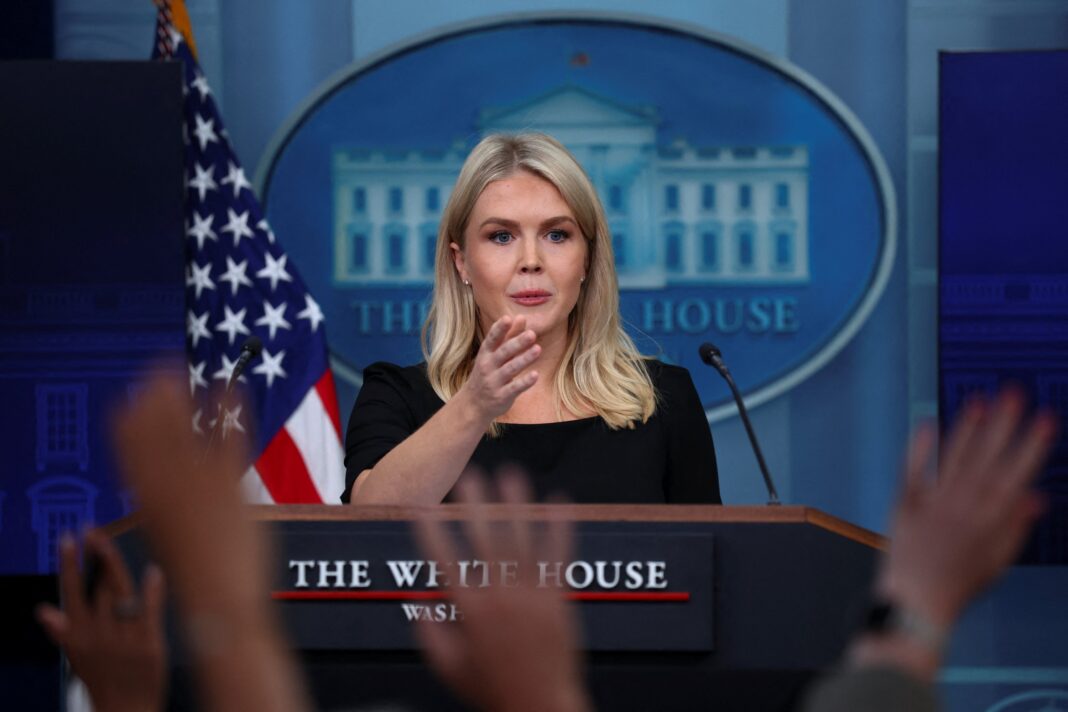President Trump has given the world a clearer timeline for what may become a defining decision in his second term: whether or not to authorize military action against Iran. Speaking through White House Press Secretary Karoline Leavitt during Thursday’s press briefing, the president confirmed that he expects to make a final call within two weeks.
“Based on the fact that there’s a substantial chance of negotiations that may or may not take place with Iran in the near future, I will make my decision whether or not to go within the next two weeks,” Karoline Leavitt said, quoting the president’s official statement.
Trump’s timing reveals a deliberate, strategic approach—keeping maximum pressure on Tehran while still leaving a door open for diplomacy. It’s a balancing act few can pull off: commanding strength without triggering premature escalation.
Predictably, skeptics in the press room pushed back, questioning whether the two-week window would hold. AFP’s Danny Kemp raised concerns about Trump’s history of setting evolving deadlines. But Leavitt maintained the administration’s position: this situation is distinct from any past scenario involving Ukraine or Russia.
“These are separate dynamics, and the president evaluates each crisis based on its unique complexities,” she said before shifting focus to what she called “failures of the Biden era”
In fact, Trump’s emphasis on diplomacy has surprised some observers who expected a quicker, more hawkish response. He has remained firm on his position that Iran must abandon its destabilizing behavior in the region but has allowed space for potential backchannel dialogue—something Biden critics claim the previous administration lacked the strength or clarity to manage.
President Trump has made it clear he always wants to pursue diplomacy.
— Karoline Leavitt (@PressSec) June 20, 2025
But believe me, the President is unafraid to use strength, if necessary.
Iran and the entire world should know that the United States military is the strongest and most lethal fighting force in the world,… pic.twitter.com/1Y71qkiUbl
Despite Iranian officials denying that any overture toward Washington has been made, Trump has asserted otherwise, suggesting some in Tehran are more receptive than they appear publicly.
“They’ve reached out. They want to talk,” he has said. Iran’s UN mission, however, has called such claims fiction and condemned what it described as “cowardly threats”
Meanwhile, critics have tried to frame the two-week wait as an unnecessary delay. But in Trump’s orbit, it’s seen as a calculated move—giving time for diplomatic solutions while keeping Tehran guessing. It’s a textbook Trump strategy: leverage uncertainty to maintain the upper hand.
Though Israel continues its military campaign against Iran-linked assets, Trump has resisted calls to act immediately. He’s made it clear the U.S. will support its allies, but not without a clear, America-first rationale behind every step.
As conservative voices like Steve Bannon and Charlie Kirk urge caution, and figures like Senator Ted Cruz reaffirm there’s “zero possibility of boots on the ground,” Trump appears to be listening. But make no mistake—if Iran crosses a line, his administration will be ready.
The next two weeks will be crucial. Whether diplomacy finds room to breathe or the path shifts toward retaliation, Trump’s decision—made on his timeline, with his reasoning—will be watched around the world.


